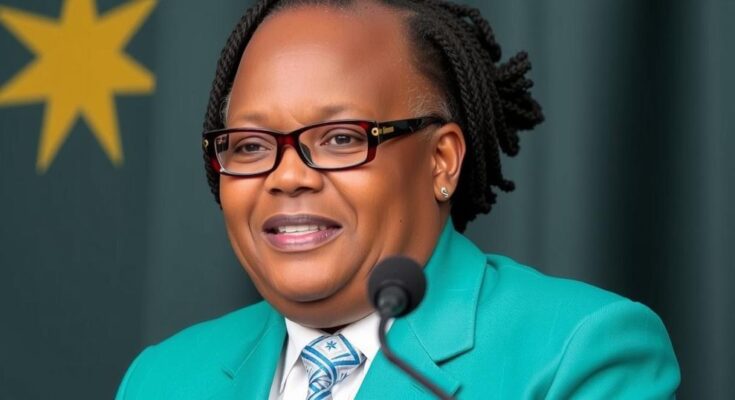Namibia’s opposition party, IPC, has filed a legal challenge to access voting totals from last month’s elections, alleging irregularities and logistical failures that hindered voter participation. The IPC refuses to recognize the election results, claimed by the ruling SWAPO party, and seeks to establish the legitimacy of the electoral process.
The primary opposition party in Namibia, the Independent Patriots for Change (IPC), has initiated a court application demanding full access to the vote tallies from last month’s elections. The IPC has expressed its refusal to acknowledge the election outcome due to concerns regarding irregularities, notably stemming from logistical issues that delayed voting on November 27. The ruling SWAPO party was announced as the victor, with their candidate obtaining 57 percent of the vote, a stark contrast to the IPC’s candidate who garnered 25.5 percent.
The IPC’s legal appeal seeks to reveal the complete results over the four voting days as a means to identify any electoral misconduct. They assert that the polling process was marred by significant problems, such as ballot shortages and malfunctioning voting equipment, paving the way for long waiting times, which led many potential voters to leave without casting their ballots. The IPC alleges that these issues were intentional tactics designed to suppress voter turnout and manipulate results in favor of the ruling party.
The election authority has acknowledged the difficulties faced during the first day of voting, highlighting the impact of these complications on the electoral process. As the IPC proceeds with its challenge, the implications of the election results and the legitimacy of the government’s claim to power are under scrutiny.
Namibia has experienced a contentious political landscape since gaining independence 34 years ago, predominantly led by the SWAPO party. The recent elections conducted on November 27 were marred by technical and logistical failures, prompting the IPC to seek judicial intervention. The IPC’s insistence on transparency in the vote count aligns with broader concerns over electoral integrity in nations emerging from a history of authoritarian governance, emphasizing the importance of fair democratic processes.
In conclusion, the IPC’s challenge to the recent election results underscores significant tensions within Namibia’s political framework. The call for transparency in the electoral process is pivotal to uphold democratic principles, as allegations of irregularities and suppression tactics warrant careful judicial examination. The outcome of this court challenge may set a crucial precedent for future electoral conduct in Namibia.
Original Source: www.barrons.com




